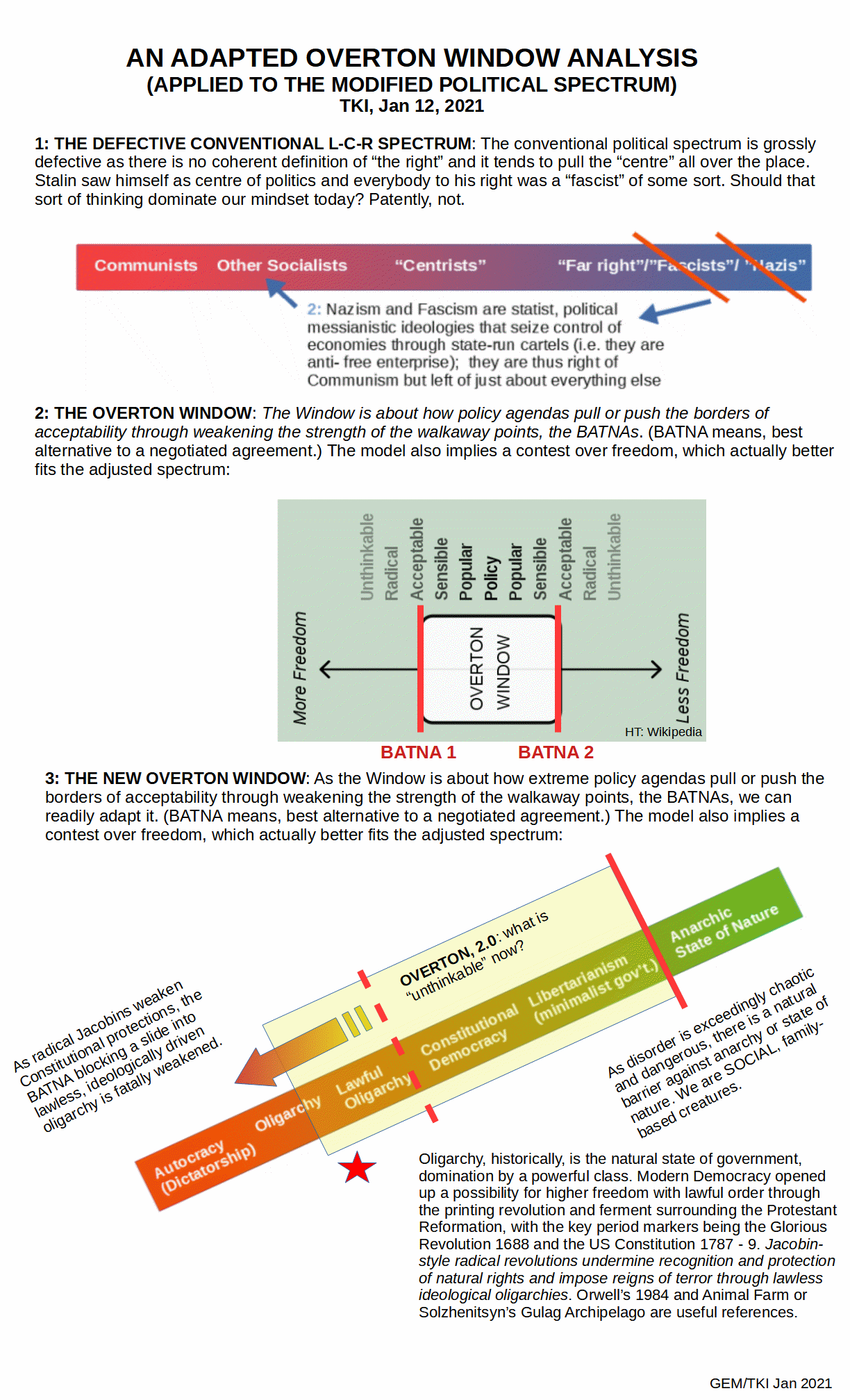1984 is a classic satirical novel on the nature of tyranny in the mass media driven, information age, totalitarian surveillance state. Accordingly, it is vital to appreciate the force of the Winston Smith on the Rack scene — yes, taken from the related movie — where the issue of the self-evident truth 2 + 2 = 4 comes up:
First truths, in short, are inextricably intertwined with first duties, and both are equally self-evident. As one clear manifestation, gross injustice is always rooted in false, unreasonable, unwarranted, dishonest thinking.
In case one is tempted to imagine that this is a dismissible satirical exaggeration, kindly ponder the sickening judicial torture-murder of Czech national hero and martyr, Milada Horakova and others on trumped up treason charges, only two years after 1984 was published:
When traitors are in power, patriots are deemed traitors and are judicially murdered. (See more details at Wikipedia.)
In defence of civilisation, we must never allow clever rhetoric or confused thinking to obfuscate lessons written in blood and tears regarding self-evident first truths and duties of reason, the first steps of honest, sound reason highlighted by Cicero and many others across the ages. Even to object (much less to misguidedly attempt to prove), one is forced to appeal to the legitimate, pervasive, first principle authority of duties
- to truth,
- to right reason,
- to prudence [including, warrant],
- to sound conscience,
- to neighbour, so too
- to fairness and justice, etc.
The attempted denial becomes self-defeatingly absurd and the evasion (often, without realising it) becomes an enabling of injustice.
Those who neglect, ignore, dismiss or despise the hard bought lessons of sound history (paid for in blood and tears), doom themselves to pay the same coin over and over and over again. END
F/N Jun 15, a reminder on the challenge of a slide back into lawless oligarchy, what overtook formerly constitutionally democratic Czeckoslovakia, once the Nazi German State, then Stalin’s Communists took over:

It helps, to also ponder dirty-form, McFaul Colour Revolution, as compared to the SOCOM state subversion model, which I have termed the insurgency escalator:
